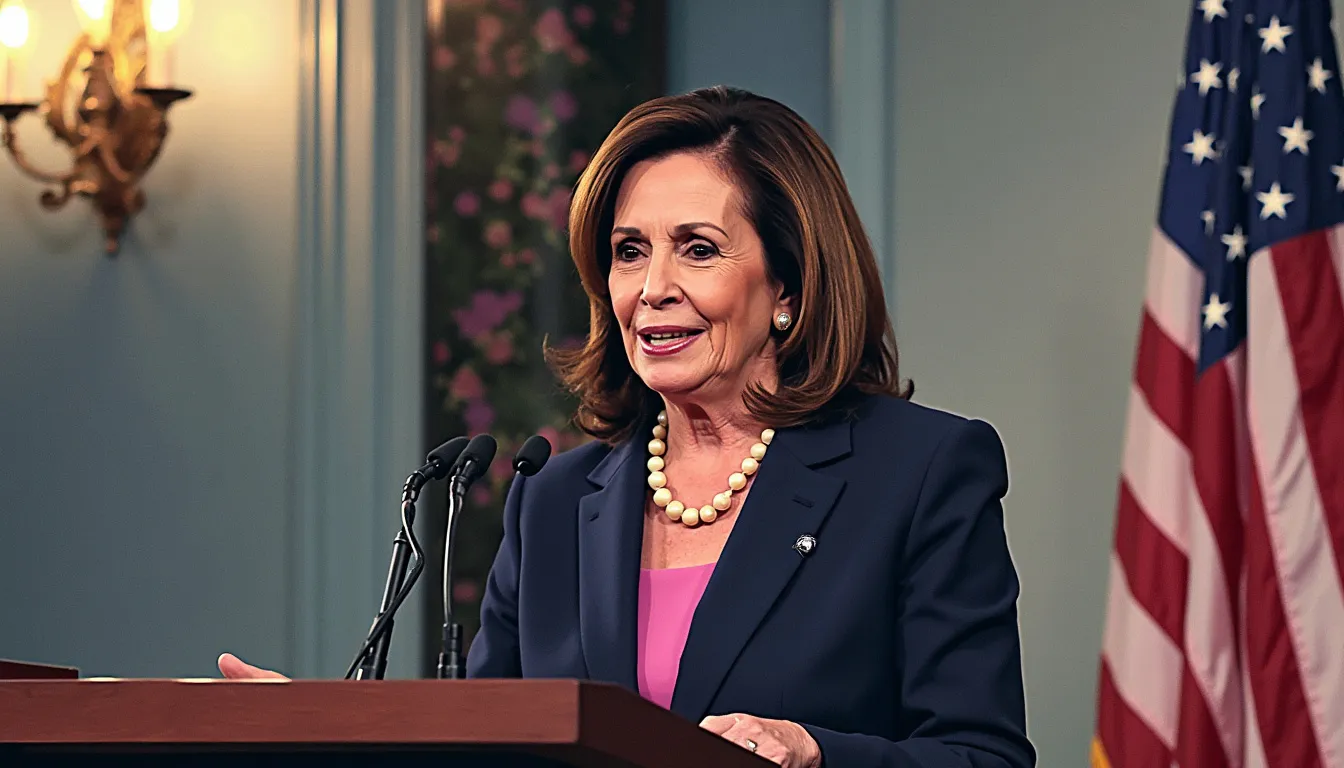
Kamala Harris Secures Democratic Nomination Amid Controversies
In an assertion that has sparked significant debate, former House Speaker Nancy Pelosi recently stated that Vice President Kamala Harris secured the Democratic presidential nomination in what she characterized as an ‘open primary’ race. This statement comes in the context of President Joe Biden’s withdrawal from the race and prompts discussions on the fairness and transparency of the Democratic nomination process.
Nomination Process
Pelosi emphasized that the nomination process was open, suggesting that anyone had the opportunity to enter the race. However, she acknowledged a lack of competitive candidates willing to stand against Harris once she began to build momentum. This raises questions about the true openness of the process, as no other prominent figures stepped forward to challenge Harris after Biden’s exit.
Endorsements and Support
Harris’s nomination was heavily bolstered by endorsements from key Democratic leaders, most notably President Joe Biden himself, in addition to Pelosi and former President Bill Clinton. These endorsements played an essential role in consolidating support and ensuring that Harris could secure a majority of delegates, positioning her as the party’s favored candidate.
Criticisms
Despite Pelosi’s assertions, critics, particularly from conservative factions, have labeled her claims as misleading. They argue that the process lacked genuine competition, effectively reducing Harris’s nomination to an anointment rather than an election. This criticism echoes wider discontent among some voters, who claim that millions were deprived of a fair opportunity to vote for alternative candidates.
Historical Context
Pelosi’s comments prompted comparisons to historical nomination practices, notably pointing out instances like former President Gerald Ford, who ascended to the nomination without facing primary challengers or a national referendum. The contrast highlights a broader evolution in the nomination process over the years.
Party Rules
Election experts have noted that the actions taken by the Democratic Party were permissible under their legal rights to establish their own nomination criteria. While the process may appear to diverge from contemporary expectations of contestable primaries, it remained within the bounds of election law.
Timing and Practicality
Amid a tight campaign schedule leading up to the election, Pelosi and other officials argued that the rapid consolidation around Harris was imperative to present a united Democratic front against the Republican nominee. This urgency was reflected in the Democratic National Committee’s virtual roll call, where Harris received an overwhelming 99% support from participating delegates, further cementing her status as the nominee.
Intra-Party Dynamics
The shift from Biden to Harris as the presumed nominee was marked by intra-party tensions regarding Biden’s competency, raising questions about his fitness for office. Pelosi’s advocacy for Biden’s withdrawal has been underscored, with many viewing her influence as pivotal in his decision-making process during a critical juncture for the party.
The unfolding narrative surrounding Kamala Harris’s nomination continues to generate discourse about the future of the Democratic Party, its adherence to democratic principles, and its strategy heading into a pivotal election season.
